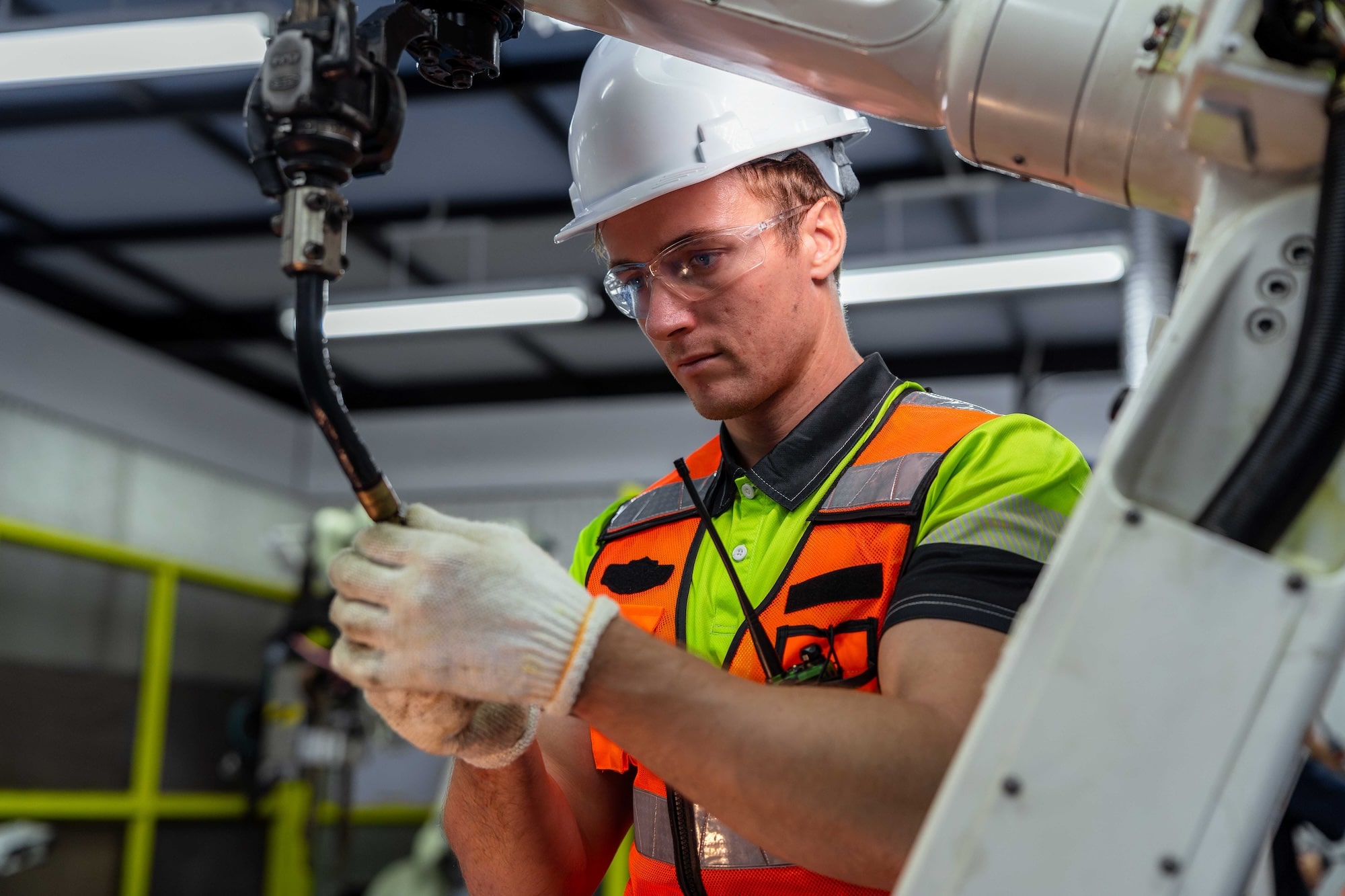Industrial Maintenance
Maintenance Technicians keep manufacturing equipment running efficiently by performing preventive maintenance, troubleshooting mechanical issues and repairing electrical systems. They’re essential to minimizing downtime and maintaining workplace safety.
Become an Industrial Maintenance Technician

Role:
Maintenance Technicians keep manufacturing equipment running efficiently by performing preventive maintenance, troubleshooting mechanical issues and repairing electrical systems. They’re essential to minimizing downtime and maintaining workplace safety.
- Skills Needed: Electrical troubleshooting, hydraulics, PLCs, mechanical systems.
- Pathway: Maintenance Technician → Maintenance Supervisor → Plant Manager
- Average Salary: $50,000–$75,000 per year
Why This Role Matters:
When a machine goes down, everything stops. Maintenance technicians keep production moving by ensuring equipment runs safely and efficiently. They’re the go-to troubleshooters for mechanical and electrical issues and play a huge role in reducing costly downtime. Their work supports safety, productivity and profitability—and there’s constant demand for their skills.
This role requires a unique blend of problem-solving, technical knowledge and hands-on mechanical ability. Every day presents a new challenge, from diagnosing electrical issues to rebuilding mechanical systems.
As manufacturers adopt more automation and advanced equipment, the need for skilled maintenance technicians is rising. It’s a future-ready career path with job stability, room for specialization and a clear path toward leadership roles like maintenance supervisor or plant engineer.
Frequently Asked Questions
Many start through technical school or apprenticeship programs. Employers often look for mechanical or electrical troubleshooting experience.
Not just fixing—much of the role involves preventive maintenance to avoid breakdowns, plus system upgrades and diagnostics.
Yes. Over time, many technicians specialize in areas like hydraulics, HVAC, or programmable logic controllers (PLCs).
